
 |
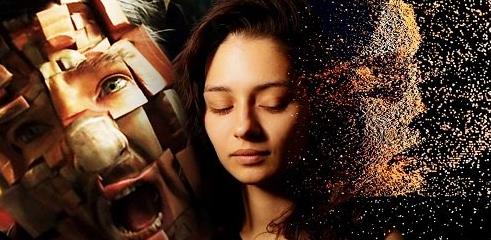 VFX Disintegration Transition Effect Inspired by Doctor Strange movie using Adobe After Effects Content Source:https://www.skillshare.com/classes/VFX-Disintegration-Transition-Effect-Inspired-by-Doctor-Strange-movie-using-Adobe-After-Effects/2040008259 Genre / Category: File Size :495MB In this Adobe After Effects class we are going to learn visual effects by creating Disintegration Transition Effect Inspired by Doctor Strange VFX. This class is great for Beginner level as well as expirienced VFX artists. This is a great way to introduce yourself to Adobe After Effects, and also learn few skills if you already familiar with this software.  Unstoppable Orgasms With Bonuses Content Source:https://unstoppableorgasms.com/special/ Genre / Category: File Size :402MB 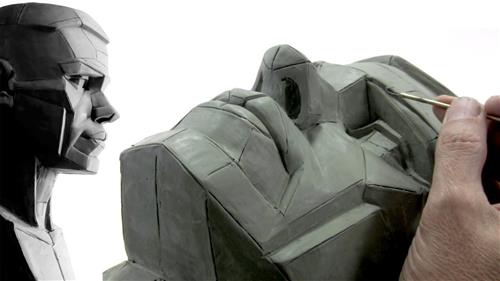 Sculpting the Planes of the Head – A Fundamental Guide to Mastering the Head with John Brown Content Source:https://www.thegnomonworkshop.com/tutorials/sculpting-the-planes-of-the-head Genre / Category: File Size :2.3GB Successful head sculpture begins with understanding where the vertical/horizontal planes and facets are, and the fundamental relationship the features have with them. In this tutorial, figurative artist and educator John Brown breaks down the life-size male head into a series of planes and facets, establishes the facial feature land marks, discusses depth, creating shadows and shares valuable techniques for sculpting the best head possible. John also demonstrates how to use templates, translate a 2D drawing to 3D, symmetry tricks, how to model a hard surface, and create a light-weight full-scale armature. As supplementary featurettes, we visit 3DScanLA and demonstrate the process of creating a digital model through Photogrammetry scanning, how to import into ZBrush, and the basics of cleaning up scanned data to create a 3D print ready model. 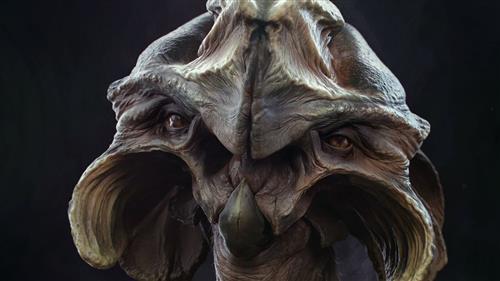 The Gnomon Workshop – Original Creature Concepts – Exploration to Presentation Content Source:https://www.thegnomonworkshop.com/tutorials/original-creature-concepts Genre / Category: File Size :852MB In this workshop, Concept and Character Artist Pablo Munoz Gomez shares his workflow for generating an original and appealing creature concept from an arrangement of abstract 3D shapes. The process covers everything from the initial idea, explaining the methodology and core concepts of the technique, all the way to the final render and composite. The steps to achieve figurative forms may seem counterintuitive, but producing quick variations early on is crucial for the development of a solid and convincing design. Throughout this workshop, Pablo emphasizes the importance of the iterative process and the exploration of ideas, sharing practical advice and tools to refine the abstract forms into a concept with a more cohesive visual language. Although the subject of this workshop is the concept of a creature, the workflows and application of the 2D and 3D tools are not specific to creature design. The techniques that Pablo shares are segmented in clear steps that can be applied to any type of project. The first steps introduce the technique of creating thumbnails using Photoshop, Krita and ZBrush, before then moving into 3D space to build custom assets. The 3D assets will then be used to create an abstract 'cluster' as a base to further explore the design. The second stage of the process consists of developing variations of the cluster and to identify suggestions of a more figurative creature. In the third and final stage, the creature is defined, detailed, textured with polypaint, posed, rendered with Keyshot and finalized in Photoshop. For those looking to explore new forms and shape language with their designs, this title offers insight into an effective and practical workflow. 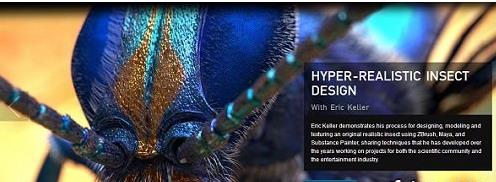 The Gnomon Workshop – Hyper-realistic Insect Design with Eric Keller Content Source:https://www.thegnomonworkshop.com/tutorials Genre / Category: File Size :8.5GB In this video series, Eric Keller demonstrates his process for designing, modeling and texturing an original realistic insect using ZBrush, Maya, and Substance Painter, sharing techniques that he has developed over the years working on projects for both the scientific community and the entertainment industry. He talks about how he relies on insect physiology and evolutionary biology as guidelines for his original concept and how to bring photo and microscope reference directly into ZBrush using Spotlight. 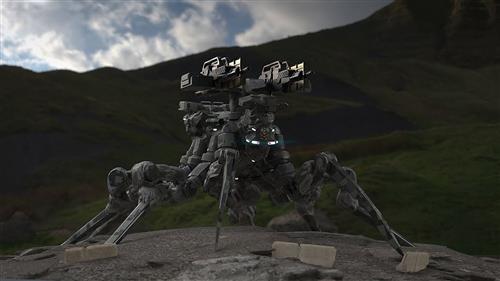 The Gnomon Workshop – Designing a Piloted Combat Mech with Ara Kermanikian Content Source:https://www.thegnomonworkshop.com/tutorials/designing-a-piloted-combat-mech Genre / Category: In this workshop Ara goes through his workflow and creative techniques for ideation, concepting and designing a mech for a film, videogame, or VR project. As visual demands continue to escalate and project timelines shrink, the concept design phase in production has shifted to using 3D tools. Ara goes through a 3D workflow using various tools and VR to sketch, refine, model and render a piloted combat mech used for personnel insertion or extraction, the MP9 PIX mech. The workflow begins with exploration and research of the specifications and designs for the mech and obtaining an overall vision 3D sketch. After getting approval of this milestone, the mech is then divided into functional parts and broken out into projects for each part, then the entire model is combined, and further detail is added. 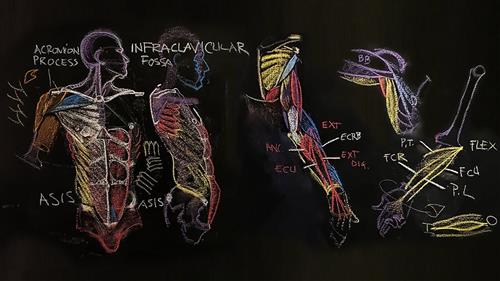 The Gnomon Workshop – Anatomy for Artists Volume 3 Understanding the Front Torso & Arm Content Source:https://www.thegnomonworkshop.com/tutorials/anatomy-for-artists-volume-3 Genre / Category: File Size :2.2GB Artistic Anatomist and Professor Rey Bustos returns with Volume 3 in the Anatomy for Artists series. This third instalment is divided into two segments, beginning with the Front Torso and conluding with the Arm. Rey launches the workshop with an in-depth study of the layers of muscles that matter to artists when drawing the upper bodies of human figures and characters. The guide shares how the Rectus Abdominis, Pectoralis Major, External Oblique, Deltoid, and Serratus Anterior, are all essential to an artist's understanding of human anatomy, in an easy-to-learn format. 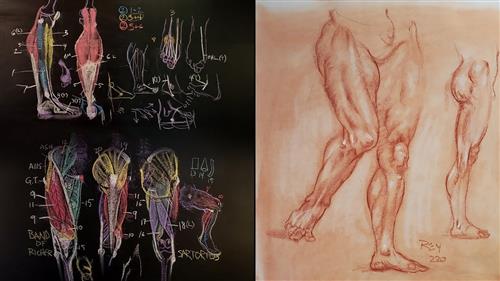 The Gnomon Workshop – Anatomy for Artists Volume 2 Understanding the Leg and Foot Content Source:https://www.thegnomonworkshop.com/tutorials/anatomy-for-artists-volume-2 Genre / Category: File Size :2.6GB In this workshop, Artistic Anatomist and Professor Rey Bustos delves into the anatomy of the human leg and foot. Rey splits the lecture into two sections: the lower leg and foot, then the upper leg, thigh and gluteals. In the first section, he explains and breaks down the forms and major tendons of the feet that make up the most important aspects necessary for every artist to be aware of. He then leads the lecture up to the essential muscles of the leg and lists each muscle and its placement on the skeleton while referencing a muscle sheet that is provided to you. Once the leg and feet are understood, Rey moves up to the thigh and gluteal section of the body. In this section, he starts not with individual muscles as he did with the lower leg, but with the four major groups of muscles in the thigh. These are the quadriceps, the adductors, the flexors (Hamstrings) and finally the gluteal muscles. 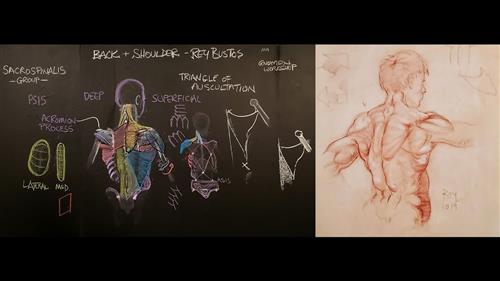 The Gnomon Workshop – Anatomy for Artists Volume 1 Understanding the Back and Shoulder Muscles Content Source:https://www.thegnomonworkshop.com/tutorials/anatomy-for-artists-understanding-the-back-and-shoulder-muscles-with-rey-bustos Genre / Category: File Size :1.6GB "Artistic Anatomy" refers to the essential muscles that create the visible shapes that we see on a model's physique. Rey Bustos, famed illustrator and anatomist, teaches how to illustrate the complex back and shoulder muscles in a way that is preferred by most artistic anatomists. When illustrating, it's not necessary for artists to know every single muscle of the body. By editing the key number of muscles that artists need to know down to a minimum, Rey begins the workshop with a focus on the Sacrospinalis (or Erector) spinae group — some of the deep muscles in the center of the back that can be found along the spine all the way up to the base of the skull. These complicated, often-stringy muscles are important and keep humans upright — but they can be challenging for artists to study individually. Rey reveals the simplest way to understand and interpret this muscle group and teaches easy-to-remember strategies for illustrating the forms. 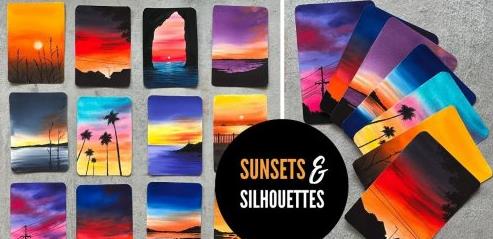 SUNSETS AND SILHOUETTES – A 30 Day Watercolor Challenge for Beginners Content Source:https://www.skillshare.com/classes/Practical-Graphic-Design-Learn-Adobe-InDesign-Through-Fundamental-Design-Principles/2104884732 Genre / Category: File Size :602MB Sunsets are so beautiful, it is indeed a magical moment to witness the sky turning into a huge canvas. Sunset are a great inspiration for all the artists, you can learn about wonderful color combinations, light and hues and so much more. I love watching sunsets as well as painting them, you can do it too. |